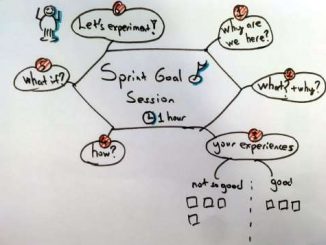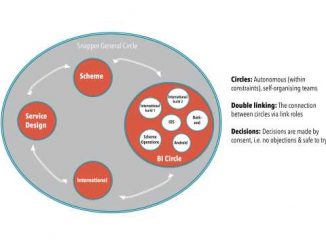People and team member management for Agile project management and Scrum software development teams.
The Scrum Glossary defines the Sprint Goal as “a short expression of the purpose of a Sprint, often a business problem that is addressed”. In this article Özmen Adibelli provides a facilitation meeting structure and some tips on how to facilitate a session about a controversial topic like the Sprint Goal.
In Agile project management approaches like Scrum, the role of the product owner is fundamental to deliver value to the customer. The product owner role has high responsibility and requires many different skills. In a series of posts titled “Thoughts about hiring Product Owners”, Viktor Cessan discusses some product owner hiring anti-patterns and shares some tips and questions that could help improve your product owner hiring experience.
Using an Agile project management framework like Scrum does not avoid the problems of right-sizing the team. What do you do when you need to increase the numbers of people involved? When is the team too big? How to split an existing Scrum team? In this article, Cynthia Kahn provides some tips on how to assess and manage the growth of Scrum teams.
How does your team improve? What are the limits to what you can do? Have you set your sights high enough? We are in this together in everything. We need to improve as a team, as well as deliver work products together. Furthermore, best practices lead to dead ends and bad practices.
Training and certifications are an important part of the Scrum and Agile movements. In this article, Zuzana “Zuzi” Šochová shares some tips to improve training session. While they are more focused on the Certified Scrum Trainers (CST) needs because of her experience, they are useful for to any type of (Agile) training.
Holacracy defines itself as “a customizable self-management practice for organizations”. This idea is not very far from the self-organization approach of Scrum, but it proposes a different framework to deal with issues. In her article “Decentralising Leadership: Holacracy in Practice”, Sandy Mamoli shared the story of implementing Holacracy in an Agile organization.
If the title of this book is a clear reference to the current trendy approach in software development, readers should be aware the that most important part is maybe in the subtitle “Systems Thinking and Organizational Legacy”. Not that Agile minds will be disappointed by reading it, but this book discusses the more important fact that from time to time software developers tries to adopt a new set of best practices and most of the time they fail.






